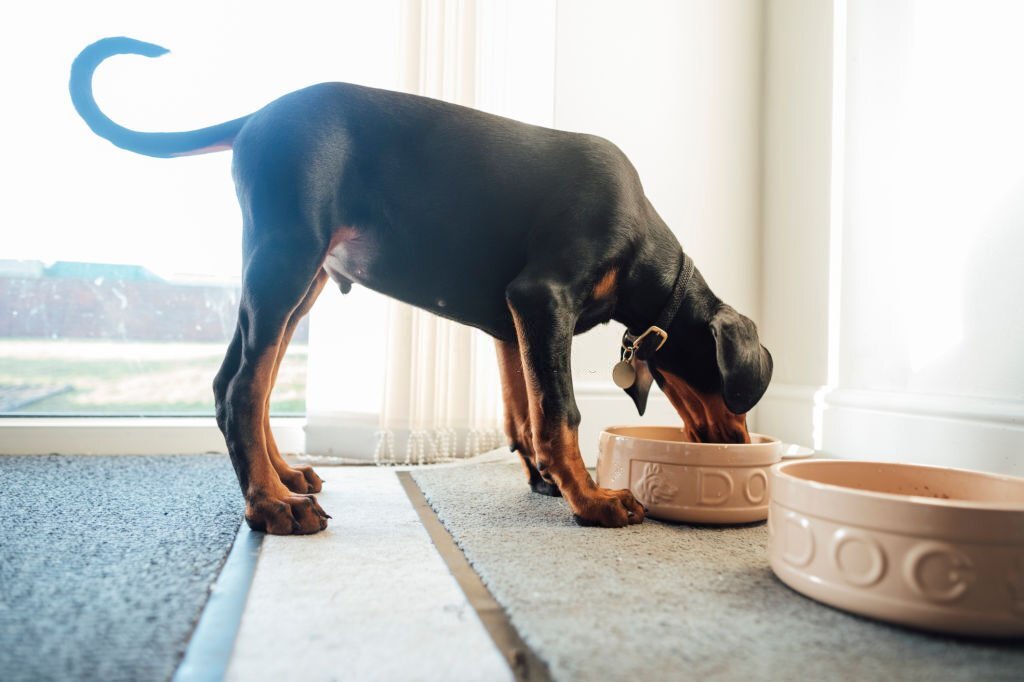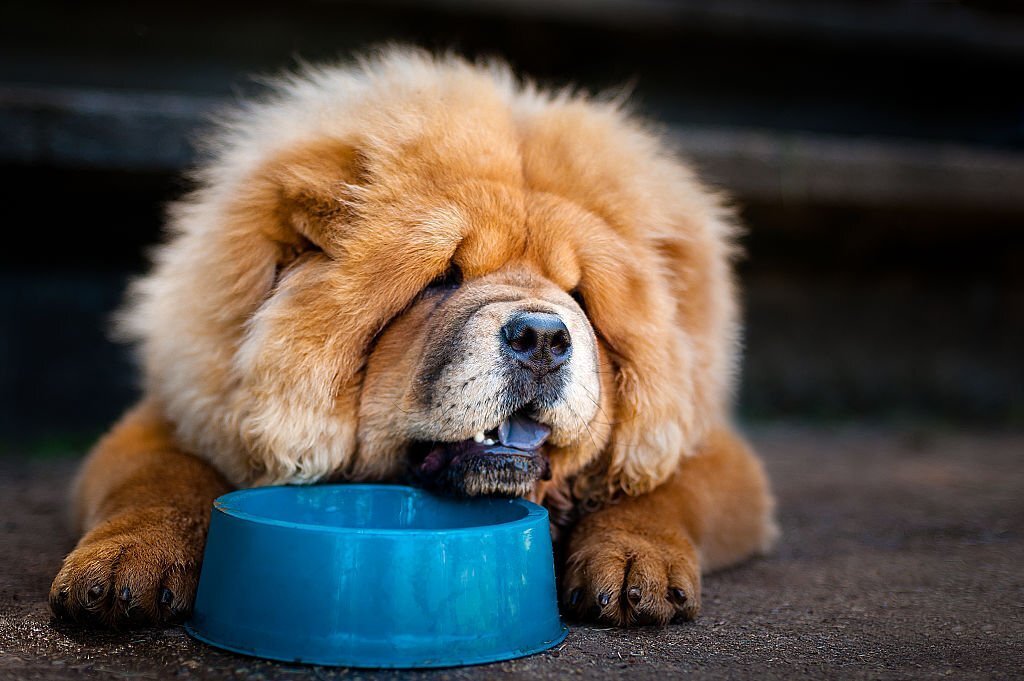Dog Stopped Eating But Still Drinking Water
Your dog has been eating and drinking normally for years, but all of the sudden Dog Stopped Eating but Still Drinking Water. You’re worried, so you take them to the vet and are given the diagnosis of pancreatitis. What causes this, and how is it treated?
Pancreatitis is a serious disease that affects dogs’ pancreases. The pancreas is responsible for digesting food and producing hormones, and when it becomes inflamed, it can cause problems with the dog’s digestion and nutrient absorption. Dogs with pancreatitis often stop eating because the pain makes it difficult for them to eat or drink.
If your dog is diagnosed with pancreatitis, there are a few things you can do to help them feel better. Treatment usually involves antibiotics to fight infection, pain medication, and a special diet that is low in fat and easy to digest. With treatment, most dogs will make a full recovery.
Reasons Why Dogs Stop Eating But Continue To Drink Water

There are several reasons why a dog might stop eating but continue to drink water. It’s important to note that this is not normal behavior, and if your dog is experiencing this, it’s crucial to consult your veterinarian for a proper diagnosis and treatment plan. Here are some of the potential causes:
Medical Issues:
- Illness: Many illnesses, such as respiratory infections, digestive problems, kidney disease, liver disease, and even cancer, can cause a loss of appetite.
- Pain: Pain in the mouth or teeth, abdomen, or anywhere else in the body can make eating uncomfortable or even impossible.
- Medications: Some medications can have side effects that include decreased appetite.
- Diabetes: Excessive thirst and urination are classic signs of diabetes, and some dogs may also lose their appetite.
- Intestinal obstruction: This is a serious condition where something blocks the passage of food through the intestines, and it requires immediate veterinary attention.
Non-Medical Issues:
- Stress or anxiety: Changes in routine, new pets or people in the house, travel, or other stressful events can cause a dog to lose their appetite.
- Picky eating: Some dogs are simply more finicky about their food than others.
- Dental problems: Dental disease can be painful and make it difficult to eat.
- Change in food: Switching to a new food too quickly can upset a dog’s stomach and make them hesitant to eat.
Also Read: The Side Effect Of Dog IV Fluid: What You Need To Know
When To Worry About Your Dog Not Eating But Drinking Water
When it comes to your pup’s diet, it’s important to keep an eye out for any changes. If your dog has suddenly stopped eating but is still drinking water, it’s worth getting them checked out by a vet.
There could be any number of reasons why your dog is suddenly turning their nose up at food, but some of the most common ones are gastrointestinal issues, liver problems, and pancreatitis. So if your pup is usually an enthusiastic eater but is now just picking at their food or not eating at all, it’s best to get them checked out just to be safe.
Water is still an important part of your dog’s diet, so don’t stop them from drinking! But if they’re not eating anything else, make sure to take them for a walk and see if that jogs their appetite.
How To Help Your Dog Start Eating Again
It can be really worrisome when your dog suddenly stops eating. But before you start panicking, there are a few things you can do to help get your pup back on track.
First, make sure your dog is still drinking water. Dehydration can be a major cause of lack of appetite in dogs, so this is an important thing to keep an eye on.
If your dog is eating but not getting enough nutrients, you might want to consider changing up their diet. Consult with your vet to see if they might recommend a food that’s higher in protein or has more moisture content.
And finally, make sure your dog isn’t feeling stressed or anxious. This can also lead to a loss of appetite. See if there’s anything going on in their environment that might be making them uneasy, and try to make some changes if necessary.
Dog Not Eating But Drinking Water And Vomiting And Diarrhea
Dog is not eating but drinking water and is also vomiting and having diarrhea. This is a worrying set of symptoms and it is important to take your dog to the vet as soon as possible. There are many possible causes of these symptoms, some of which are more serious than others.
Here are some of the possible causes of your dog’s symptoms:
- Dietary indiscretion: This is the most common cause of vomiting and diarrhea in dogs. It can be caused by eating something that they shouldn’t, such as garbage, table scraps, or spoiled food.
- Infection: Viruses, bacteria, and parasites can all cause vomiting and diarrhea. Some common infections that can cause these symptoms in dogs include parvovirus, distemper, and giardia.
- Intestinal obstruction: This is a serious condition that can be caused by a foreign object being lodged in the intestines. Symptoms of intestinal obstruction include vomiting, diarrhea, abdominal pain, and lethargy.
- Pancreatitis: This is an inflammation of the pancreas, which is an organ that helps with digestion. Symptoms of pancreatitis include vomiting, diarrhea, abdominal pain, and loss of appetite.
- Liver disease: Liver disease can cause a variety of symptoms, including vomiting, diarrhea, weight loss, and jaundice.
- Kidney disease: Kidney disease can also cause vomiting, diarrhea, and other symptoms.
How Can I Stimulate My Dog’s Appetite?
First and foremost, consult your veterinarian. They can help rule out any underlying medical conditions that might be causing your dog’s lack of appetite and provide personalized advice based on your dog’s individual needs and history.
Once you’ve cleared any medical concerns, here are some strategies you can try:
Make their food more enticing:
- Warm their food: The aroma can be more appealing.
- Add a small amount of water or broth (low-sodium, no onion/garlic) to dry food.
- Offer small, frequent meals instead of one large one. This can be easier on their stomach and more tempting.
- Try hand-feeding. This can create a positive association with mealtime.
- Mix in a small amount of a strong-smelling, highly palatable topper like cooked, shredded chicken or salmon.
- Consider a bland, easily digestible diet like boiled chicken and rice (unseasoned). This can be helpful if their stomach is upset.
Create a positive mealtime environment:
- Feed your dog in a quiet, stress-free location.
- Avoid distractions like other pets or loud noises.
- Use a food puzzle or slow feeder to make mealtime more engaging.
- Offer praise and encouragement when they eat.
Tips For Prevention

So your dog has stopped eating—that’s definitely not a good sign. But don’t worry, there are a few things you can do to help prevent it from happening in the first place.
One thing you can do is make sure your dog always has fresh water to drink. This is especially important in the summertime, when the heat can be dehydrating. You might also want to consider investing in a pet water fountain—studies have shown that dogs are more likely to drink from moving water.
Another thing you can do is make sure your dog’s food is high-quality. Avoid brands that use artificial ingredients, because these can be harmful to your dog’s health. And finally, make sure your dog is getting enough exercise. A tired dog is less likely to become bored and stop eating.
Also Read: How To Relieve Dog Period Cramps: An Expert Guide
Conclusion
Dogs can stop eating for a variety of reasons, and one of the most common is dehydration. If your dog has stopped eating but is still drinking water, it’s important to take them to the vet to find out what’s going on.
There could be a number of issues causing your dog to stop eating, and the vet will be able to help you find the root cause. In the meantime, make sure your dog stays hydrated by giving them plenty of water to drink.
FAQs
How long can a dog go without eating but drinking water?
While a healthy adult dog can technically survive for 3-5 days without eating as long as they’re still drinking water, it’s crucial not to wait that long if your dog isn’t eating.
Will a dog eventually eat if hungry?
In most cases, a healthy adult dog will eventually eat if they’re hungry enough, especially if they have access to clean water.
Is it okay if my dog skips a meal?
Healthy adult dog skipping one meal: Usually not a problem, monitor and offer food at the next mealtime.
Skipping more than one meal, especially with other symptoms: Consult your vet within 24-48 hours.
Puppies, senior dogs, pregnant/lactating dogs, or dogs with health issues skipping any meals: Consult your vet promptly.
Why has my dog stopped eating?
There can be many reasons why a dog has stopped eating, but the most common ones are diet-related, such as a change in food or allergies. It’s also possible that there’s something wrong with the dog’s mouth or teeth, or that he’s feeling sick and doesn’t want to eat. If you think your dog might be sick, take him to the vet as soon as possible.
Why is my dog drinking so much water?
If your dog is drinking more water than usual, it could be a sign that he’s dehydrated. Dehydration can be caused by various things, such as vomiting, diarrhea, or excessive exercise. If you think your dog might be dehydrated, take him to the vet as soon as possible.
What should I do if my dog stops eating and drinking water?
If your dog has stopped eating and drinking water, it’s important to take him to the vet as soon as possible. Dehydration can be life-threatening, so it’s crucial to get him help right away.

